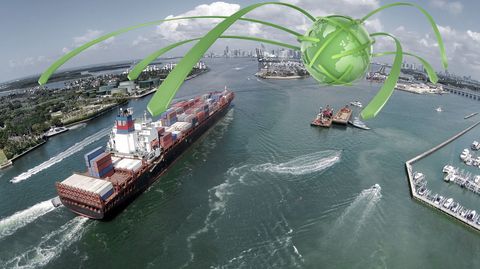Although the UK's vote to leave the European Union in June 2016 was undoubtedly one of the most momentous political developments affecting global trade in recent memory, it is only over the coming months that it will become clear what this will really mean for businesses worldwide.
No EU member state has ever quit the bloc before, meaning the process - triggered by activating Article 50 of the Lisbon Treaty, the 2007 constitutional reform agreement that introduced the mechanism for leaving the EU - remains untested. As such, companies in the UK and those that depend on trade with Britain have been in the dark over what the true implications of Brexit will be.
However, clarity on this front is fast approaching, following British prime minister Theresa May's formal activation of Article 50 on March 29th 2017. This has commenced a two-year process of negotiations and legal discussions, culminating in the UK's final withdrawal from the EU by April 2019. As such, businesses will want to make themselves aware of the key dates and processes that will prove instrumental in deciding the shape of the post-Brexit trade landscape.
April 29th 2017 - the European Council on Brexit
The first significant step in this process will be the planned European Council on Brexit, in which the 27 members of the EU that will remain in the bloc after the UK's departure will meet to adopt guidelines for how the negotiations will proceed.
Donald Tusk, the president of the European Council, has stated that the main priority for the coming talks will be to create as much certainty and clarity as possible for all citizens, companies and member states that may be negatively affected by Brexit, both those within and outside the EU.
Determining how the negotiations will proceed is likely to take several months, meaning the talks themselves are unlikely to commence before summer 2017.
June 8th 2017 - the UK's general election
A new wrinkle to these complex proceedings was added on April 18th with Theresa May's surprise announcement that a UK general election will be held on June 8th. Mrs May cited the need for strong, decisive government leadership to be put in place ahead of the Brexit talks.
Current polls suggest her Conservative Party will enjoy an increased majority as a result of this election, which will make it easier for Mrs May to push ahead her goals and agenda for Brexit. Any change of government, however, would almost certainly result in a different outlook for the negotiating process.
It is also worth noting that at least 14 other EU member states will be holding elections in 2017 and 2018, with some - especially those in France and Germany - having the potential to substantially shift the tone of the discussion, depending on who wins.
Summer 2017 - negotiations over exit terms
The first point of business is likely to be the terms governing the UK's exit from the EU and how it will be implemented.
There are a number of potentially contentious issues to be discussed at this stage, including the so-called divorce bill of the UK's financial liabilities resulting from its departure, as well as the rights of EU nationals in UK and British citizens in EU member states, the country's withdrawal from EU-funded schemes, and the status of free trade agreements (FTAs) with non-EU countries.
These talks are likely to take up the remainder of the year, but the EU and UK will be hoping that an amicable agreement can be reached as quickly as possible, in order to leave as much time as possible for their future relationship to be discussed.
2018 - the future relationship takes shape
Assuming talks surrounding the exit terms are brought to a swift conclusion, the bulk of 2018's talks will concern future issues such as terms of trade and market access in goods and services, agreements on regulatory supervision and dispute resolution, and the future cooperation between the UK and EU in non-economic areas such as security, research and development.
The UK has expressed confidence that a comprehensive FTA can be reached before its EU membership expires in 2019, given that it already shares a common regulatory environment with Europe that simply needs to be maintained. However, given that most trade deals take around five years to complete, this will be a challenge to achieve.
Due to the complexity of these negotiations, it is unlikely that businesses will know the details of any post-Brexit FTA - or whether it is realistic to expect that one will be in place in time for April 2019 - any earlier than the tail-end of 2018.
April 2019 - Brexit becomes a reality
The two-year Article 50 process will end on March 29th 2019, meaning that unless the situation changes unexpectedly before then, Britain will leave the European Union once and for all in April of that year.
This will happen regardless of whether a final trade deal has been reached, meaning the UK could be left without free trade arrangements in place - although a short-term transitional deal has not been entirely ruled out.
One way or another, April 2019 is when post-Brexit life begins for the UK and Europe, so businesses will need to keep a close eye on all these developments to ensure they are ready for the reality of what that entails.






